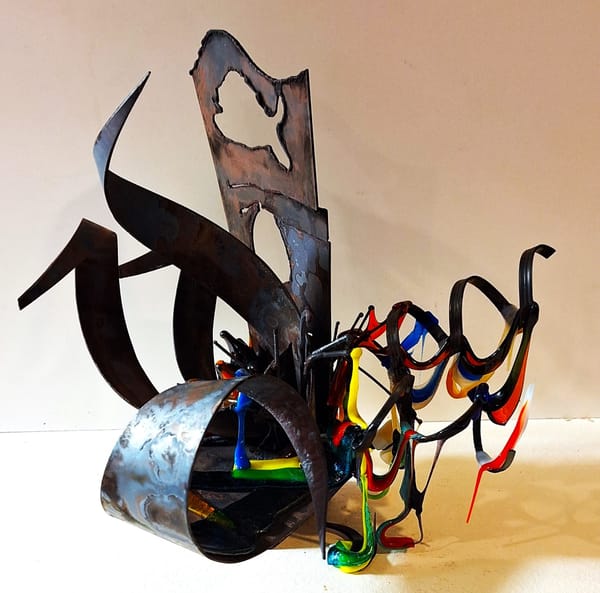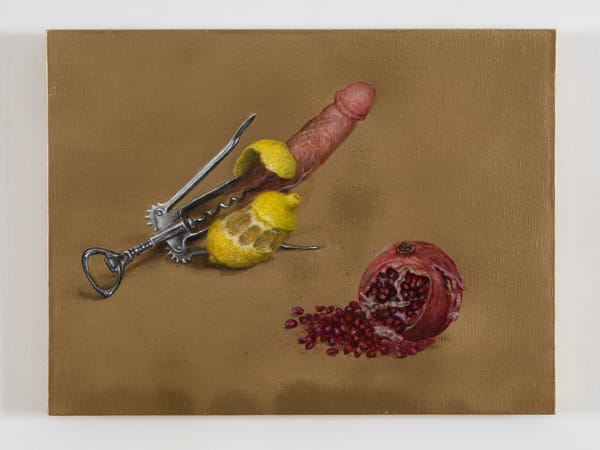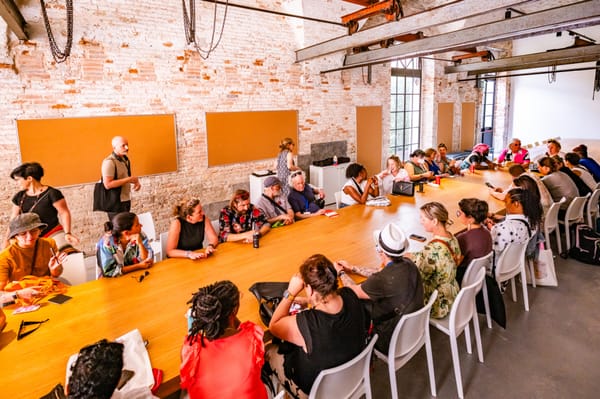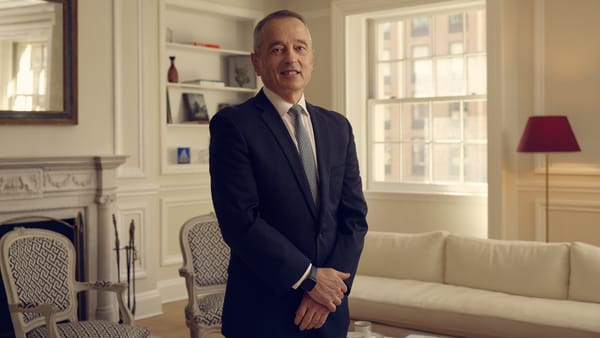Berlin Court Convicts Curator Over Instagram Posts About Hamas Attack
Edwin Nasr must pay a fine for posts made the day after Hamas’s October 7 attack, which he said he removed.
A German court convicted Berlin-based Lebanese curator and writer Edwin Nasr of “approval of crimes” and ordered a fine of €1,000 (~$1,058) over Instagram story posts he published last year pertaining to Hamas’s October 7 attack on Israeli ravers at the Supernova dance festival near the Gaza border. During his sentencing last Monday, November 11, Nasr stated that he was not aware of the full extent of the attacks until later on and apologized to those hurt by the content of the posts.
It’s the latest example of prosecution of anti-Israel speech by the German government, which over the last 13 months has taken an increasingly hard-line stance on expressions of solidarity with Palestine and any criticism of Zionism and Israel, which it increasingly conflates with antisemitism. Earlier this month, a Berlin court fined a 42-year-old Iranian citizen under the German Criminal Code for sharing the slogan “from the river to the sea” twice on her Instagram in November and December 2023. In the cultural sector, the stifling of pro-Palestine speech has led to canceled exhibitions, talks, and programs as well as to the targeting of groups and individuals whose support for the Palestinian cause is automatically seen as aligned with terrorist organizations. In one such instance, leadership of the state-funded contemporary art exhibition Documenta released a statement against Ruangrupa, the Indonesian collective that curated its most recent edition, for “liking” social media videos of people chanting “Palestine will be free” at a demonstration on the day of Hamas’s attack.
Nasr’s conviction centered on three consecutive Instagram stories he posted on October 8, 2023, as reporting around Hamas’s attack was beginning to reach international news outlets. The first story post featured a historical illustration of Black soldiers hanging two White soldiers from nooses attached to palm trees, which Nasr captioned: “I’ve no fanon quotes nor lucid analyses in me to share in the hopes of convincing the complacent and perplexed among us that anti-colonial struggle inherently entails bloodshed … To hell with whoever at this point isn’t able to recognize or indulge in the beauty of revolutionary violence, even (if not especially) as it comes to produce scenes of ‘intolerable’ brutality.”
The second story post included three images of Israeli ravers fleeing the Supernova dance festival with the words “POETIC JUSTICE” overlaid in bold red text. The third featured two photographs — one of a young Israeli girl signing a missile destined for Lebanon during the Second Lebanon War in 2006, which Nasr captioned with”Remember this icon of settler innocence?”; and a female Israeli raver running away from the dance festival with the statement “This is her now.”
In a statement during his sentencing, as reported by German media outlet Die Welt, Nasr and their attorney Benjamin Düsberg relayed that the curator did not know a massacre had unfolded at the Supernova festival at the time they posted the stories. Nasr said they had gone out to a nightclub after uploading the posts and immediately removed them after learning the severity of the attack.
“With the posts, I was reacting to Israeli partygoers who were dancing on the wall and thereby demonstrating their indifference to the plight of the Palestinian people,” Nasr said in court.
According to Die Welt, the publication’s own contributor, Boris Pofalla, accessed Nasr’s Instagram stories and filed a criminal complaint against him. Pofalla, which Nasr said he has never met, also penned articles against Ruangrupa and curator Bonaventure Ndikung. In the case of Ndikung, Pofalla criticized his stance on the Boycott, Divestment, Sanctions (BDS) movement, which promotes sanctions on Israel for its oppression of Palestinians.
Pofalla had mentioned Nasr’s Instagram stories in conjunction with criticism of October 7 responses from Ruangrupa as well as Palestinian artists Emily Jacir and Jumana Manna in a Die Welt feature published on October 11, 2023. However, Nasr told Hyperallergic that he was only informed by Berlin police of a criminal investigation against them in April. (Pofalla confirmed with Hyperallergic that he filed the criminal complaint against Nasr on October 11, the date his article ran in Die Welt.)
“I’d only been based in Berlin for about a year when this ordeal began, and so it felt particularly surreal to find myself in the middle of such a revanchist and racially motivated media spectacle, just as the ongoing Israeli genocidal campaign against Palestinian life in Gaza was raging on,” Nasr said, explaining that he has been struggling to keep up with rent and healthcare payments and hasn’t booked a single curatorial opportunity since the Instagram stories were shared in the media.
Formerly working at the Center for Contemporary Arts in Berlin, Nasr chiefly curated a solo exhibition for Brazilian artist Jota Mombaça as a part of Berlin Art Week programming in 2023.
“I’m thankfully surrounded by loving friends and members of the community who’ve been immensely supportive, and honestly at this point in time it feels grotesque to want to ponder on one’s career when all that we’ve come to know and love is getting exterminated as we speak,” he said.
Artists and culture workers in Germany continue to navigate the tensions of working with state-run institutions as the government limits speech criticizing Israel. This week, filmmaker Hito Steyerl, South African Jewish artist Candice Breitz, Forensic Architecture’s Eyal Weizman, and Turkish-German artist Raphael Malik withdrew from the upcoming “Art and Activism in Times of Polarization” symposium at the Neue Nationalgalerie after the event was targeted in a social media post by the boycott advocacy group Strike Germany.





